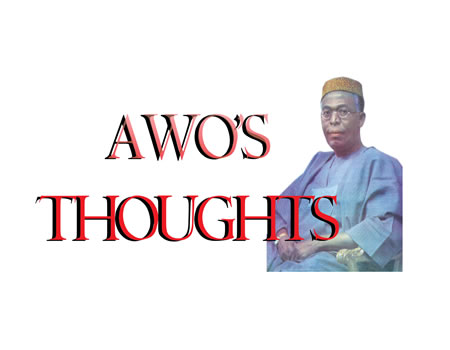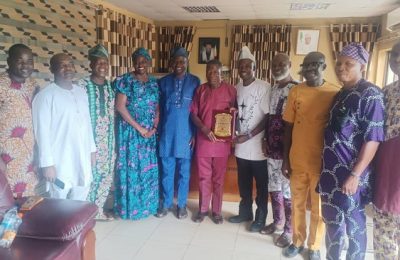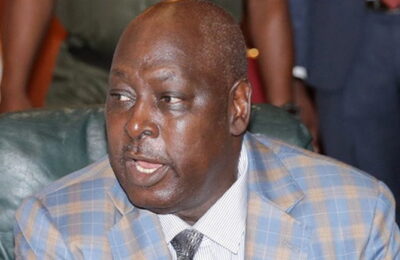Two examples are enough to substantiate this point. Firstly, the FAO envisages that, by 1980, our cotton output would increase by a minimum of 120 per cent, and a maximum of 200 per cent. However, our textile mills are prepared, and can expand sufficiently, within the next two years, to consume an increase of 400 per cent, in order to meet three-fourths of our requirements of textiles. We have the land, and we have the manpower to produce this quantity immediately. But we lack the techniques; and the expected returns from cotton on an acre of land do not provide enough incentive.
Secondly, the FAO also envisages that, by 1980, our COP would climb laboriously to £38 per capita. We can, and should endeavour to achieve more than double this amount by 1980. But this latter target is possible, only if, right now, we bring about an agrarian revolution which will usher in the modernization of all aspects of our agricultural activities, including the consolidation of small land-holdings in certain parts of the country, and the introduction of co-operative farming, storage, processing, transport and marketing.
For the sake of realistic planning, some of the inescapable results and necessities of the modernization of our agricultural economy must be noted and borne in mind. In the first place, it would be idle and an illusion, and courting a disastrous failure, to embark on the kind of agrarian revolution about which we have been speaking without having an adequate team of suitably qualified extension workers, in addition to equally adequate teams of competent agricultural engineers and managers. In the second place, agricultural modernization is bound to lead to a considerable reduction in the number of those engaged in farming. Invariably, this has been the outcome of agricultural revolution in other countries. In Britain, for instance, only 3 per cent of the 27 million people who are engaged in civil employment now do farming; as compared with 80 per cent in Nigeria-Le., 20 million out of our 25 million-strong active labour force. It follows, in the third place, that modernization of agriculture must of a necessity generate considerable expansions in the other five categories of occupation, namely: manufacturing, transport, distributive, banking, and infrastructural occupations which are clearly described at pages 125-127 of The People’s Republic. These expansions are essential in order that those displaced from primary occupation, as a result of agricultural modernization, may be fully absorbed into other gainful employments. In the fourth place, assistance to farmers, under the new agrarian dispensation, will take the forms of (1) technical aid, (2) education in the techniques and management of farming, storage, and marketing, (3) monetary advances on crops, and (4) subsidy. That is to say, farmers who conscientiously practise co-operative farming etc., will no longer need to be burdened with loans either from government institutions, or from money lenders; and the abuses connected with existing loan schemes for farmers will be eliminated.

NOTE: Since concluding the draft of this Section on 1 March 1969, I have had the gratification of reading the comments made by Professor Glenn Johnson, on 26 March 1969, on the Paper, entitled Agriculture and Rural Development, submitted by Professor H. A. Oluwasanmi to the CONFERENCE ON NATIONAL RECONSTRUCTION AND DEVELOPMENT IN NIGERIA which was held at Ibadan from 24-29 March] 969. The following short excerpt from Professor Johnson’s comments is very apposite: ‘I want now to stimulate your imagination by presenting a few projections concerning the possible contribution of agriculture to Nigeria’s future. We estimate that Nigeria can be producing over three times its 1961 GDP by 1985. By then GDP from a properly managed agriculture ‘Would probably make up about one third of the total as contrasted to 55 per cent in 1966. Conservatively that one third, however, would be over twice as large as in 1966. It would contribute much more foreign exchange, larger amounts of raw material for industry, more and better quality food per capita for up to 100 million people, and more income for savings and investment in both the farm and non-farm sectors. From the stand point of social and distributive justice, we see the possibility of substantially improving the lots of millions of small holders and livestock producers to such an extent that the increase in their effective demand for the products of Nigeria’s urban and industrial economy would be a positive driving force for the industrialization of Nigeria.’
- Economic Freedom
At p. 301 of The People’s Republic I define economic freedom as follows:

‘Economic freedom exists when a politically sovereign country, independently of outside control or direction, organizes the exploitation and deployment of its total resources for the benefit of its entire people, under a system in which the forces of supply and demand and of marginal utility are controlled and canalized for the common good.’

In Chapters 12 and 13 of the same book, I have discussed this definition in extenso, and I do not wish here to repeat or add to what I have said. Some comments on the targets for self-sufficiency in consumer nondurables and durables and in capital goods are, however, necessary.
In the first place, I cannot conceive of any non-durable consumer goods, which we need, for which we cannot produce a substitute in this country, within a matter of two years at the longest. In this connection, it is apposite to recall what I have already said in The People’s Republic at pp. 193, 194, and 327 about the regulation of consumption to ensure that, production or utilization of resources is directed towards essential ends.’ For, though our wants are infinite and incapable of regulation, yet our needs for food, clothing, shelter, and knowledge, in such quantity and quality as to guarantee to us the enjoyment of sound health in body and mind and of human dignity, are limited, ascertainable, and amen-able to statutory regulation.
In the second place, there is not a single item of durable consumer goods which we cannot produce in this country within the next five years provided we proceed, forthwith, to the construction of our projected and much-advertized iron and steel complex, the preliminary work on which has been completed for some two years now. Again, as in the case of non-durables, the emphasis should be on our essential needs rather than on our infinite wants which include conveniently dispensable luxuries.
CONTINUES NEXT WEEK








